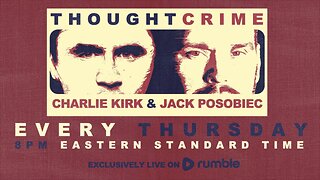The Great Stock Exchange Fraud of 1814: A Controversial Case of Lord Cochrane's Guilt or Innocence
The Great Stock Exchange Fraud of 1814 remains one of the most intriguing and controversial cases in British history. At the center of this scandal was Lord Cochrane, a renowned naval officer who had gained fame for his heroic achievements in battle. However, his involvement in this fraudulent scheme cast a shadow on his legacy and raised questions about his innocence. Over the years, historians and scholars have debated Lord Cochrane's culpability, with conflicting views on whether he was truly guilty or unfairly accused.
Lord Cochrane's Background and Involvement
Lord Cochrane, also known as Thomas Cochrane, was a Rear Admiral in the British Navy during the early 19th century. He was a distinguished figure, known for his daring exploits and strategic brilliance in naval warfare. However, his career took a dramatic turn when he became embroiled in a stock market fraud that shocked the nation.
The Allegations and Conviction
In 1814, Lord Cochrane, along with his uncle Andrew Cochrane-Johnstone and several others, was accused of manipulating the stock market by spreading false information about the Napoleonic War's outcome. This misinformation caused panic among investors, leading to a significant drop in stock prices. Lord Cochrane was alleged to have profited from these price fluctuations by selling his own shares at inflated prices, earning substantial profits in the process.
Following an extensive investigation and trial, Lord Cochrane was found guilty of fraud and sentenced to a year in prison, as well as being stripped of his naval rank. This verdict sent shockwaves through society, tarnishing his reputation and casting doubts on his previous achievements.
The Controversy Surrounding Lord Cochrane's Guilt
Lord Cochrane's culpability has been a subject of intense debate among historians and scholars. Some argue that the evidence presented during the trial was sufficient to establish his guilt. In his 1965 book "A Matter of Speculation: The Case of Lord Cochrane," Judge Henry Cecil supported the notion of Lord Cochrane's guilt, presenting a compelling argument based on the available facts.
Brian Vale, in his 2004 book "The Audacious Admiral Cochrane," also supports the idea of Lord Cochrane's guilt. Vale delves into the details of the fraud, examining the motives and actions of the accused. His thorough research and analysis present a convincing case against Lord Cochrane.
On the other hand, some historians argue for Lord Cochrane's innocence. John Sugden's 1981 PhD thesis, titled "Lord Cochrane: A Reassessment," concludes that the question of Lord Cochrane's guilt cannot be satisfactorily resolved. Sugden highlights the inconsistencies in the testimonies and the possibility of a conspiracy against Lord Cochrane.
Christopher Lloyd, in 1947, and David Cordingly, in 2007, both concluded that Lord Cochrane was innocent. Their research challenges the credibility of the witnesses and raises doubts about the fairness of the trial.
Restoration of Lord Cochrane's Reputation
Despite his conviction, Lord Cochrane's reputation gradually began to be restored in the subsequent decades. He was reinstated in the British Navy in 1832 and went on to receive numerous honors, including the Restoration of the Order of the Bath. In 1877, a Select Committee recognized the injustice and declared their acknowledgment of Lord Cochrane's innocence.
However, the debate surrounding Lord Cochrane's guilt or innocence continues to this day. While some believe that the subsequent recognition of his innocence is a strong indication of his non-involvement in the fraud, others argue that it may have been a mere political gesture to rectify a past mistake.
Conclusion
The Great Stock Exchange Fraud of 1814 stands as a testament to Lord Cochrane's complex and controversial legacy. The question of his guilt or innocence remains unanswered, with historians and scholars presenting conflicting arguments. While some argue for Lord Cochrane's guilt based on the evidence presented during the trial, others believe in his innocence, claiming inconsistencies and potential conspiracies. Ultimately, Lord Cochrane's role in this historic fraud continues to captivate and divide opinions, leaving us with an enduring mystery from the past.
-
 LIVE
LIVE
Rekieta Law
2 hours agoDaniel Perry Pardoned, Cohen Pressed, NFL Shaken, Clarence Thomas Grilled, ADL Most Affected
3,446 watching -
 LIVE
LIVE
Price of Reason
7 hours agoAmazon Wants FEMINIST Tomb Raider! Gaming DEI Agenda EXPOSED w/ Dreadroberts
1,624 watching -
 1:38:48
1:38:48
TheMonicaCrowleyPodcast
11 hours agoThe 2020 to 2024 Trek Clean Elections
3.95K5 -
 LIVE
LIVE
Akademiks
3 hours agoHappy Birthday Big AK. Lets bring it in together chat.
6,242 watching -
 1:28:57
1:28:57
The Charlie Kirk Show
5 hours agoTHOUGHTCRIME Ep. 44 — Is Doxxing Dead? Poo-Loving Libs? The Truth About Pearl Harbor?
56.8K54 -
 1:18:32
1:18:32
Kim Iversen
7 hours agoBig Pharma Hopes For Another Cash Cow Vaccine With Bird Flu GAIN OF FUNCTION Research
43.5K139 -
 3:14:17
3:14:17
Melonie Mac
9 hours agoGo Boom Live Ep 4!
35.3K16 -
 1:11:58
1:11:58
Precision Rifle Network
1 day agoGuns & Grub S2E4
26.3K4 -
 58:42
58:42
The Anthony Rogers Show
12 hours agoEpisode 312 - Steve Farrell
23.5K4 -
 54:46
54:46
LFA TV
19 hours agoDemocrats’ Unhinged 2024 Campaign Plan: ‘Get Trump’ by Whatever Means Possible| Trumpet Daily 5.16.24 9pm EST
33.3K18